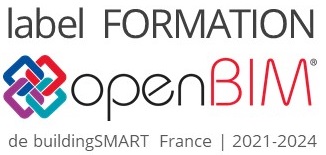
Specialities
Specialities, options, professions, the Construction Engineering course offers many possibilities.
A total of 18 courses are available to train construction professionals in line with the needs of the profession and the challenges of tomorrow!
Here are the 6 possible specialisations :
- Maritime and river works
Development and installation of wind turbines, tidal turbines, construction and maintenance of ports... The sea is a new horizon for economic development, a source of green energy and a means of communication.
- Engineering structures
Bridges, tunnels, dams... Large-scale projects that must take into account the budgetary, environmental and human impacts, in an international working context.
- roads and networks
Roads, motorways, optical fibres... Efficiency, safety of processes, reduction of environmental impact through the development of alternative materials and innovative techniques.
- Technical and industrial buildings
Hospitals, factories, laboratories... Extreme security to meet natural (earthquake), functional (integration of specific equipment) and human (movement, comfort) constraints.
- Residential and tertiary buildings
Construction, maintenance and rehabilitation of schools, office buildings and collective or individual housing for better energy efficiency while respecting the comfort, environment and health of users.
- Sustainanle and smart buildings (NEW)
Designing and constructing new generations of buildings that offer a high level of safety and are part of a sustainable development approach. A revolution that involves the use of innovative materials and techniques (sensors), but also integrates the latest digital tools. This speciality is labelled openBIM par bSFrance (2021-2024)

In parallel, engineering students choose their carreer option :
- Methods and production
Management plays an important role in the curriculum, regardless of the options and specialisations chosen. The "methods and production" option goes further into the optimisation of construction methods and Lean management applied to construction.
- Engineering and studies
Future engineers are trained in the design of structures, using digital models with a global and sustainable approach to construction (life cycle of the structure).
- Entrepreneurship and innovation
Some students go into management (or even the creation / takeover of construction companies) with innovation as a common thread and a double engineer- manager diploma at the end of the course ESITC Caen - EM Normandie.
